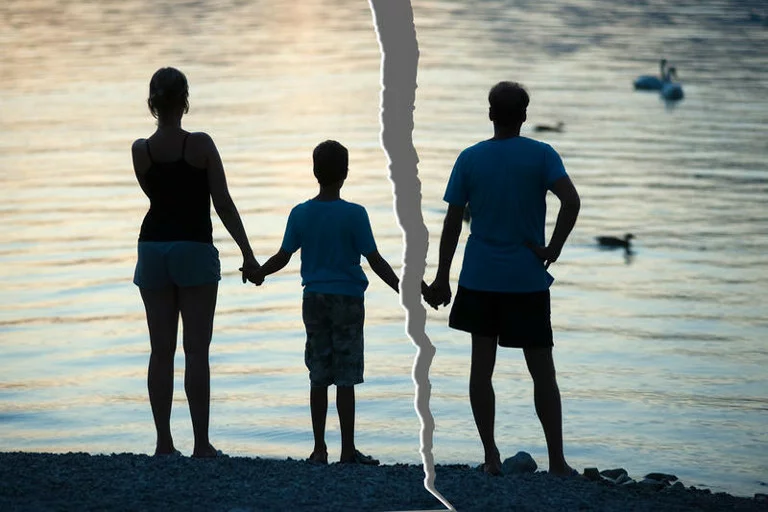You are coming to terms with the fact that your substance use isn’t casual, and you need help overcoming your addiction. But how do you bring your family into this conversation? Thinking through how to tell your loved ones about your addiction can help prepare you for the first steps of recovery.
Accepting that you have a substance abuse problem and need rehab is a profoundly important first step in the recovery process. Admitting to yourself that you have an addiction is difficult enough, so how do you then start the process of talking to your family about your situation?
Finding the words to describe your experience and what you are going through can be challenging, and you are concerned about the reaction from your family. Breaking the isolation and secrecy in which addiction thrives, however, is critical in moving yourself forward to recovery. Preparing yourself for a conversation with your family can help ease this process, and give you time to set up supportive resources for whatever comes next.
Why Should I Tell My Family About My Addiction?
As you are coming to terms with your addiction, your mind is likely coming up with a variety of reasons not to tell people about what you are facing. You may be thinking things like:
- “If I tell my family about this, they’ll be so disappointed. I don’t want to hurt them.”
- “This is my problem, not anyone else’s. What’s the point in talking to other people about it?”
- “My family will be shocked and upset if they know. I don’t think I can handle their reaction.”
While the concerns you have about this conversation are legitimate, the benefits of talking to your family about your addiction outweigh the disadvantages of doing so. Addiction thrives in the shadows, and so bringing it to light helps to challenge its hold on your patterns of thoughts and behaviour.
It is likely that your family will experience a range of emotions when hearing about your addiction, and it’s important to be prepared to address those and know how to support yourself during this time. In many cases, people are surprised to learn that their family knows about their addiction already, but may have been unsure of how to talk about it or afraid to address it. Opening a space to talk about addiction also allows opportunities for your family to show you compassion and support as you enter recovery.
How to Begin a Conversation with Your Family About Addiction
It may not be easy to start a conversation with your family about addiction, but it is important to begin to include loved ones in this aspect of your life and to make your intentions for recovery known. Here are a few tips to help organise your thoughts around how to broach this important and sensitive topic:
Choose the time and place to talk
Because the conversation is a highly personal one, it’s important to be in a setting where you and your family feel safe and comfortable. Minimising the possibility of interruptions or distractions is also essential. Depending on the circumstances, you may want to try to talk to your family at home, or in a public area with adequate space.
Letting your family know in advance that you have something you’d like to discuss can also help ensure that enough time is allocated for a full conversation. You may say something like, “I need to talk through a problem with you. Could we set aside some time?” or “Would you have some time to talk about something that I’ve been struggling with? I’d really appreciate your support.”
Share openly, and set boundaries
When you talk to your family, you will want to explain to them how addiction is affecting your life. This can include its effects on your physical and mental health, as well as how it impacts aspects of your life like your work or relationships. It is important to help them understand that addiction is a disease – that it is not something that you can just stop, and it requires medical intervention and treatment.
When sharing this information with your family, you may want to ask them to keep details of your addiction and your treatment plan private until you are ready to discuss them with others. Establishing this boundary can help protect your privacy, and give clear guidance to your family.
Be prepared for emotions and questions
It can be difficult to gauge the reaction of family members to the addiction of a loved one, particularly if it hasn’t been previously discussed. Shock, sadness, and even anger may come up as you begin to talk about your addiction. Your family may feel the need to share their experiences with your addiction with you, and talk about the impact that it’s had on their lives as well.
Apologising for any hurt that you may have caused and reiterating your desire to enter treatment can help demonstrate your accountability and pave the way for reconciliation. While it is important to allow your family the space to talk about their feelings, it’s also okay to set some boundaries, particularly if blame or shame begin to enter into the conversation.
It’s likely that your family may have questions about your addiction. They may want to know things like:
- How long have you had the addiction?
- Why didn’t you tell us about the addiction earlier?
- What are your plans for treatment?
- Is the addiction our fault? Did we do something wrong?
- Can’t you just stop using on your own?
Think through how you might answer some of these questions, and if you want to address them when you first start talking with your family about your addiction. You may want to tell your family up front that you are willing to answer their questions after you speak with them first.
Have some support
In the event that a conversation with your family is particularly difficult, it’s good to have a supportive person that you can turn to afterwards for guidance and comfort. Reaching out to an addiction specialist prior to having this conversation can help you plan what you are going to say, prepare for possible reactions, and ensure that you have an experienced person to go to for support after the conversation is finished.
Finding Support to Move Past Addiction at The Dawn

At The Dawn Wellness Centre and Rehab, an international drug and alcohol rehab in Thailand, our compassionate team of specialists have spent years guiding people through successful, lasting recoveries. We understand that addiction affects a person in many different ways, and so our holistic, residential treatment approach combines the most effective psychotherapeutic techniques with a variety of proven wellness practices to heal the mind and the body.
We also recognise the importance of educating and counseling families on addiction while a client is in treatment. Our specialists will help to address impacts of the addiction on the family, and work with them to cultivate ways to support and sustain a family member’s healthy recovery. Call The Dawn today to learn more about our unique addiction programming.
Related Posts
 How Do I Tell My Spouse about My Drug Addiction: 9 Tips
Talking to your spouse about your drug addiction for the first time may not be easy, but it is essential. Thoughtfully preparing for this discussion can help as you take...
How Do I Tell My Spouse about My Drug Addiction: 9 Tips
Talking to your spouse about your drug addiction for the first time may not be easy, but it is essential. Thoughtfully preparing for this discussion can help as you take...
 Discussing Your Depression with Your Child: 4 Tips for a Good Talk
Depression can be hard to put into words, but when you are a parent with depression, it’s important to be able to explain what’s going on to your children. Preparing...
Discussing Your Depression with Your Child: 4 Tips for a Good Talk
Depression can be hard to put into words, but when you are a parent with depression, it’s important to be able to explain what’s going on to your children. Preparing...
 Family Roles in Addiction: How the Whole Family Plays a Part in the Continuation of Addiction
Alcohol and drug addictions are damaging for everyone involved. Even just one family member struggling with substance abuse can impact the whole family and group of friends. Frequently, growing up...
Family Roles in Addiction: How the Whole Family Plays a Part in the Continuation of Addiction
Alcohol and drug addictions are damaging for everyone involved. Even just one family member struggling with substance abuse can impact the whole family and group of friends. Frequently, growing up...
 Finding the Right Words: How to Talk to Someone With an Addiction
Having a constructive conversation with someone struggling with an addiction can be challenging, especially when your own fears and frustrations may be clouding your thoughts. Doing some research beforehand and...
Finding the Right Words: How to Talk to Someone With an Addiction
Having a constructive conversation with someone struggling with an addiction can be challenging, especially when your own fears and frustrations may be clouding your thoughts. Doing some research beforehand and...





